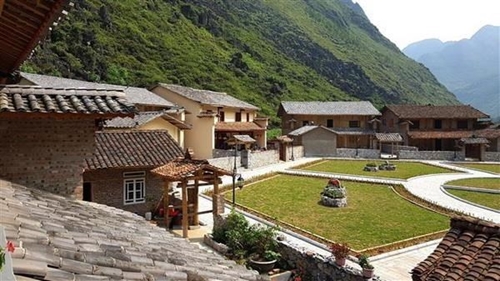June 05, 2019 | 19:09 (GMT+7)
Plan to be made for Dong Van geopark’s tourism centers
Deputy Prime Minister Trinh Dinh Dung has assigned the People’s Committee of northernmost Ha Giang province to make a general plan for developing four urban areas into tourism centers of the Dong Van Karst Plateau Geopark.
The UNESCO global geopark covers 232,606 hectares in Dong Van, Meo Vac, Yen Minh and Quan Ba districts.
Its population is forecast to reach 320,000 – 325,000 by 2020 and 370,000 – 375,000 by 2030. Meanwhile, the number of visitors there is expected to increase to 700,000 – 800,000 by 2020 and 1 – 1.1 million by 2030.
    |
 |
|
The Mong ethnic community-based cultural and tourism village in Pa Vi Ha hamlet of Pa Vi commune, Ha Giang province's Meo Vac district |
In 2017, a plan for developing the geopark up to 2030 was approved.
Under this plan, four urban areas are set to become tourism centers, namely Dong Van town – center for cultural and historical tourism; Meo Vac town – center for science and adventure tourism and border gate trade; Yen Minh town – center for eco-tourism and green growth; and Tam Son town – center for tourism and entertainment services.
Additionally, Ha Giang will develop functional areas to meet demand for tourism and trading service development, conserve heritage values of local urban areas and improve infrastructure and services at traditional villages to serve community-based tourism. It will also work to ensure construction activities do not harm natural landscapes and the environment in urban areas.
Dong Van plateau was recognized as a member of the Global Network of National Geoparks in 2010, becoming the first geological park in Vietnam and the second in Southeast Asia.
Source: VNA